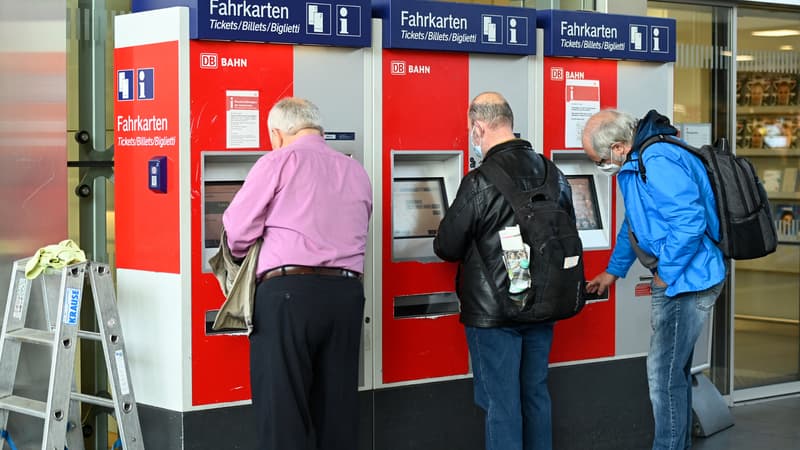From Monday, Germans can, for 49 euros per month, unlimited use of all metros, trams, city buses and, above all, regional trains throughout the country. With this very advantageous “Deutschlandticket”, the German government wants to reduce car travel, at an estimated cost of a minimum of 3 billion euros, divided equally between the Federal State and the Länder, the all-powerful German regions.
The German rail network is twice as dense as in France
Could we do the same in France? A decision of this type, eminently political, would run into several obstacles. First, our public transportation infrastructure probably could not withstand the sudden arrival of a large number of new passengers. Consulted on the subject, the president of the National Federation of Associations of Transport Users (FNAUT) has a clear opinion on the matter.
In fact, both with its TGV, France has ahead of Germany with a network that allows you to move very quickly from one big city to another, both in urban and regional public transport, it lags behind.
To be convinced of this, it is enough to compare the number of kilometers of railways in operation: 40,826 kilometers across the Rhine compared to 27,483 kilometers in France. If we take into account the difference in area, this means that the Germans benefit from a rail network twice as large as the French.
In France, employers pay for most of the local public transport
Second hurdle: getting everyone to agree. Remember that in France, each region manages and finances its rail network without real coordination with its neighbours. Rate rules differ from region to region. As for the urban metro, tram or bus networks, they are managed by the agglomerations.
Finally, there is this very French principle of making employers pay most of the cost of local public transport. In itself, this is not aberrational since they are the first to benefit from it, their employees being able to access their workplace more easily. But this complicates the financial equation.
Residents of Ile-de-France pay their Navigo pass 84 euros for a real cost of 254 euros
The example of Ile-de-France is very revealing from this point of view. The classic monthly subscription, the Navigo pass, is now sold there for just over 84 euros. But if users had to pay what it actually costs to operate the RER trains, Transilien, trams, metro and buses, they would have to pay, according to Ile de France Mobilités, almost 254 euros.
What would be the price to pay to transform this pass into a 49-euro ticket valid throughout France, knowing that today the Navigo pass is used every month by more than 2 million users, some of whom only pay half , thanks to your employer’s reimbursement Who should pay this new surcharge? The employers or the taxpayer? We see, on paper, the idea of a transposition in France of the attractive “Deutschlandticket” but when we begin to measure the consequences it becomes very complicated.
Source: BFM TV


